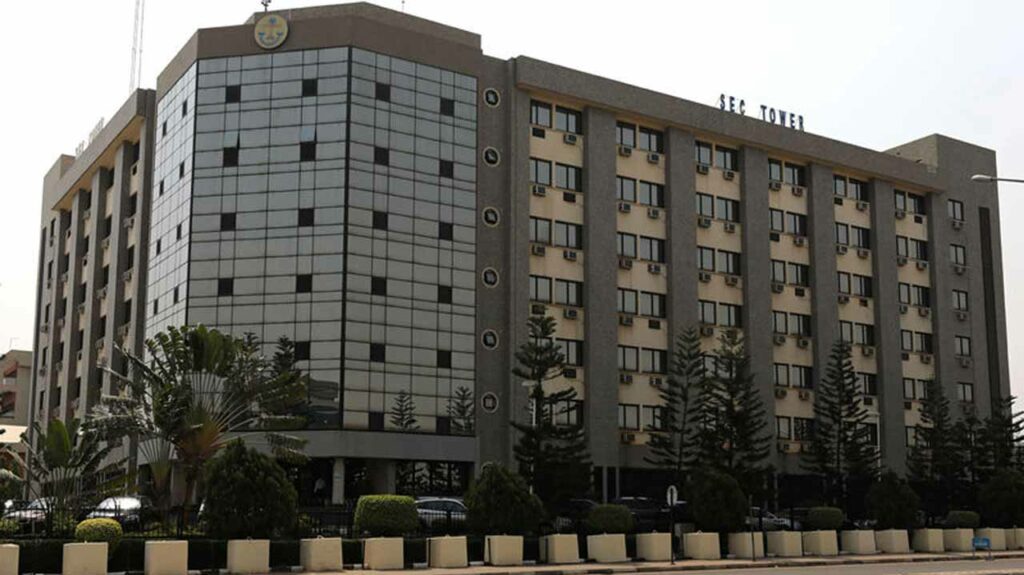By Chukwuma Umeorah
As of June 2025, unclaimed dividends in Nigeria’s capital market totalled N242 billion, according to data from the Securities and Exchange Commission (SEC). Despite technological advances and regulatory reforms including the e-Dividend mandate system, these funds continue to lie dormant, eluding their rightful owners.
The figure has grown steadily over the years, from N158.4 billion in 2019 to N190 billion in 2023, and now N242 billion, highlighting systemic inefficiencies in investor identification and payout administration.
As part of renewed efforts to tackle the rising backlog, on June 10, 2025, SEC issued a circular directing public companies and their registrars to comply with the Finance Act 2020, which mandates that dividends unclaimed for six years or more be transferred to the Unclaimed Funds Trust Fund (UFTF). Until the UFTF becomes operational, companies are required to honour all valid claims, including those not statute-barred before December 31, 2020.
Unclaimed dividends build up
Unclaimed dividends stem from shareholders’ failure to collect dividend payouts, often due to outdated records, lack of awareness, or complications arising from inheritance cases. In 1999, unclaimed dividends were valued at N2.09 billion, rising to N90 billion in 2015 and N158.44 billion by 2019, largely driven by increased retail investor participation following the banking consolidation of the early 2000s.
The growth has continued annually, N168 billion in 2020, N177 billion in 2021, N215 billion by March 2024, and N242 billion by June 2025, according to SEC data.
Prior to 2020, the Companies and Allied Matters Act (CAMA) stipulated that dividends unclaimed for 12 years were to be written off as statute-barred. However, the Finance Act 2020, which took effect on December 31, 2020, changed the landscape. Under Section 60, dividends unclaimed for six years or more must be moved to the UFTF, where they remain available for indefinite claims, essentially nullifying the statute-barred rule for post-2020 dividends.
The Investments and Securities Act (ISA) 2025 grants the SEC more enforcement powers, but the UFTF is still not operational. Responding to Daily Sun, Emomotimi Agama, Director-General of SEC, stated that “considerable progress has been made on the operationalization of the Unclaimed Funds Trust Fund by the Government,” though no firm date was given for when it would become operational. Agama added that “the Commission does not expect resistance on the issue of payment of dividends. In any event we have the tool kit to address any challenge.”
Blue-chip firms declare N114.6bn unclaimed dividend in 2024
To further underscore the deepening nature of the unclaimed dividend crisis, at least 14 blue-chip companies listed on the Nigerian Exchange (NGX) declared a combined N114.6 billion in unclaimed dividends for the 2024 financial year.
This represents a 45.8 per cent increase from N78.6 billion posted by the same firms in 2023.
Leading the pack is United Bank for Africa (UBA) Group, which reported a staggering N45.9 billion, more than triple its N14.8 billion from the previous year. Zenith Bank Plc followed with N30.6 billion, reflecting a slight uptick from N30.12 billion. Nestle Nigeria Plc declared N8.97 billion, down 6.1 per cent from N9.6 billion in 2023, while Stanbic IBTC Holdings reported a 40.6 per cent increase to N8.41 billion. Dangote Cement Plc followed closely with N5.2 billion, up from N4.7 billion. Lafarge Africa Plc recorded N2.95 billion compared to N2.07 billion in 2023, and Nigerian Breweries Plc posted N6.9 billion, up from N5.5 billion.
Other firms also made significant declarations. Transcorp Incorporated reported N2.07 billion, while Transcorp Hotels Plc declared N328.36 million. FCMB Group Plc recorded N1.6 billion, a drop from N2.1 billion in 2023. BUA Cement Plc posted N714.15 million, NASCON Allied Industries reported N635.9 million, and Dangote Sugar Refinery declared N39.54 million. MTN Nigeria Communications Plc recorded N287.7 million in returned unclaimed dividend by its registrar, although a total of N612.5 million remains outstanding, down from N1.38 billion in 2023.
Market stakeholders warn that with these firms having declared fresh dividend payouts for FY2024, the unclaimed amounts are expected to rise further in 2025 unless structural bottlenecks are eliminated.
SEC intensifies strategic interventions
To reduce the backlog, the SEC over the years has rolled out reforms designed to automate and streamline dividend claims.
Notably, in June 2024, the Commission launched an enhanced e-Dividend Mandate Management System (e-DMMS) in partnership with the Central Bank of Nigeria (CBN) and Nigerian Inter-Bank Settlement System (NIBSS). Although the platform was originally launched in 2015, the enhanced version further simplifies the process, enabling shareholders to register their bank accounts electronically using their Bank Verification Numbers (BVN).
To further bolster transparency, the SEC launched a mobile app in August 2024, allowing real-time tracking and claims, and established a dedicated unit for resolving legacy cases, especially those involving deceased investors. These measures are supplemented by sustained public awareness campaigns and a U-eDIV Search Portal that helps investors verify outstanding dividends across registrars.
These efforts have begun yielding results. Access Holdings Plc, for instance, reduced its unclaimed dividends from N21.3 billion in 2023 to N17.73 billion in 2024, a development attributed to its proactive engagement strategy and deployment of e-dividend tools.
Agama, while stating the importance of addressing unclaimed dividends, noted, “The reason why investors come to the market is to have returns, and when the return is not getting to them, it becomes a challenge. The SEC is very serious about it.” He added, “We believe technology will be the solution. The SEC is at the forefront of making sure that unclaimed dividends are reduced and eventually eliminated. We will employ technology, education, and persuasion to simplify the claim process and help shareholders understand what they need to do.”
Agama also urged shareholders to regularly update their records and take advantage of available digital platforms to check and claim entitlements without delays.


















Leave a comment